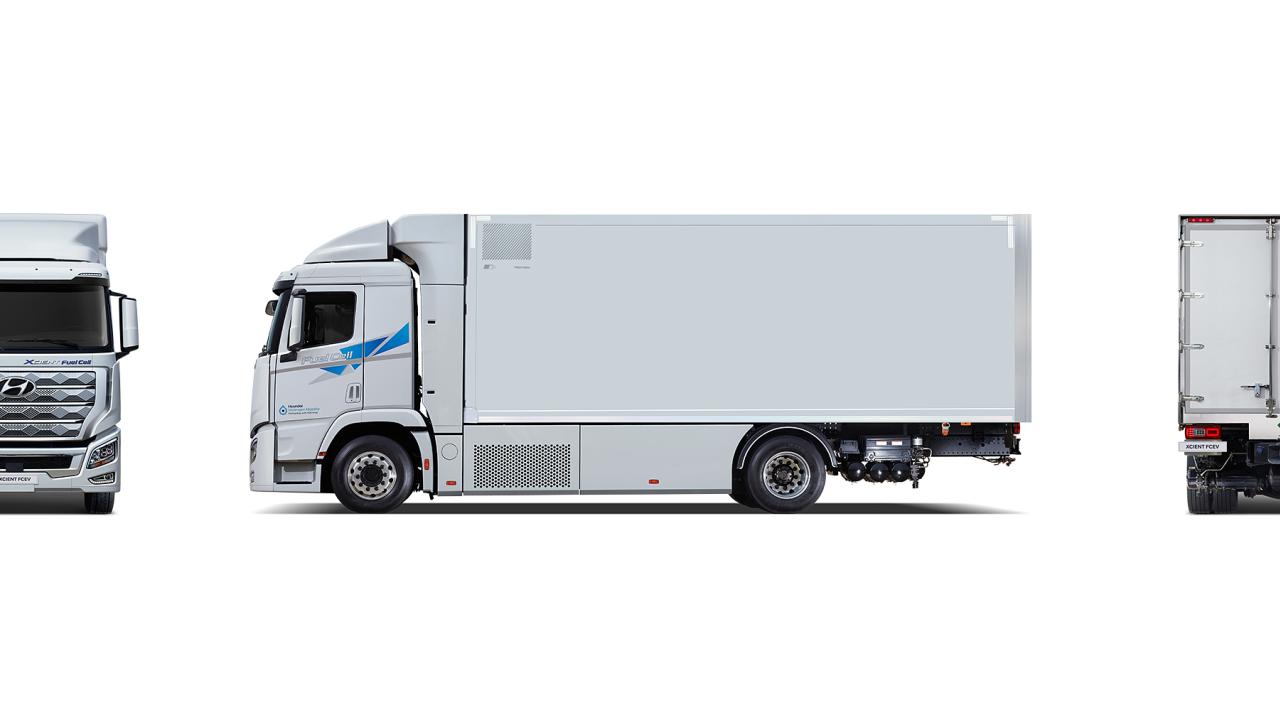Hyundai has shipped the first 10 units of its hydrogen-fulled Hyundai XCIENT heavy-duty truck, to Switzerland.
The company plans to ship a total of 50 XCIENT Fuel Cells to Switzerland this year, with handover to commercial fleet customers starting in September. Hyundai plans to roll out a total of 1,600 XCIENT Fuel Cell trucks by 2025.
XCIENT is powered by a 190-kW hydrogen fuel cell system with dual 95-kW fuel cell stacks. Seven large hydrogen tanks offer a combined storage capacity of around 32.09 kg of hydrogen. The driving range for XCIENT Fuel Cell is about 248 miles on a single refuelling. This was developed to find an optimal balance between the specific requirements from the potential commercial fleet customers and the charging infrastructure in Switzerland. Refuelling time for each truck takes approximately 8-20 minutes.
In addition to XCIENT Fuel Cell, Hyundai Motor is developing a long-distance tractor unit capable of traveling 620 miles on a single charge. It will be equipped with an enhanced fuel cell system with high durability and power, aimed at global markets including North America and Europe.
In 2019, Hyundai Motor Company formed Hyundai Hydrogen Mobility (HHM), a joint venture with Swiss company H2 Energy, which will lease the trucks to commercial truck operators on a pay-per-use basis, meaning there is no initial investment for the commercial fleet customers.
Hyundai chose Switzerland as the starting point for its business venture for various reasons. One of the reasons is the Swiss LSVA road tax on commercial vehicles, which does not apply for zero-emission trucks. That nearly equalises the hauling costs per kilometre of the fuel cell truck compared to a regular diesel truck.
Hyundai’s business case involves using purely clean hydrogen generated from hydropower. To truly reduce carbon emissions, all of the trucks need to run on only green hydrogen. Switzerland is the country with one of the highest shares of hydropower globally, and can therefore deliver sufficient green energy for the production of hydrogen. Once the project is underway in Switzerland, Hyundai plans to expand it to other European countries as well.


